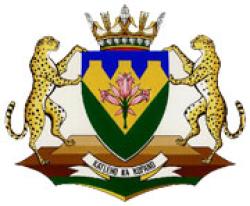
Published date
7 April 1854
The Orange Free State constitution was adopted on 7 April 1854, three weeks after the renunciation of British sovereignty.
Initially the Boers (Voortrekkers) who came from the Cape Colony in the Great Trek settled just north of the Orange River, which formed the border between the Cape Colony and the rest of South Africa. The Boers declared the area the Orange Free State, a Boer republic in 1853. The Orange Free State was recognised as an independent territory under the Bloemfontein Convention in 1854. The convention guaranteed the independence of the territory between the Orange and Vaal Rivers.
In the course of the Second Boer War (1988-1902) the Orange Free State and the Zuid-Afrikaansche Republiek (ZAR), also known as the Transvaal Republic, were engaged in a war against the British. The war ended in 1902 when the Boer lost the war. Consequently the Orange Free State was annexed as the Orange River Colony and was later incorporated in the Union of South Africa in 1910. Its name became the Orange Free State once more and after South Africa's transition to democracy in 1994 the Orange Free State became a South African province and the name was changed to Free State.
References
SAHO, Free State, from South African History Online, [online], Available at www.sahistory.org.za [Accessed: 2 April 2014]|SAHO, ‘The Bloemfontein Convention is signed’, from South African History Online, [online], Available at www.sahistory.org.za [Accessed: 2 April 2014]|Barnes, F.G., (2003), The Boer War 1899-1902, (Osprey Publishing), p.11|History Today, Historical Dictionary: Orange Free State, from historytoday, [online], Available at www.historytoday.com [Accessed: 2 April 2014]